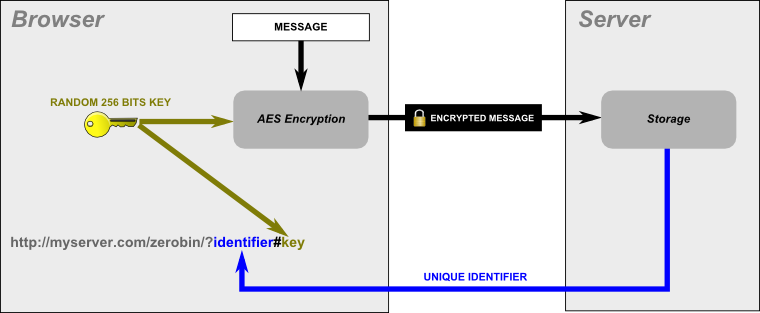+1 for your analyis, which was on top of my list for a similar publication.
use method (C):
pad address as anchor part of the URL (#…) which is never sent to server.
is perfect and fully analysed for example in links mentioned here https://github.com/owncloud/core/issues/106#issuecomment-11461766 and other articles related to client-side encryption, which often uses this property.
But how shall our entitled pad server know our pad url, it needs that ?
Look here to understand: a "hidden" encryption is perhaps to be used to enable that:
from https://github.com/sebsauvage/ZeroBin

The problem: if a user clicks on a link in the main body or in the chat, the referrer is sent by the browser to the new website showing the full url of the pad, thus revealing the pad's content and history. Typically, this referrer information information is logged and stored by the target website.
Why this is bad: most users probably do not realized that clicking on a link in a pad automatically shares the pad with the website they clicked on (!).
Solutions:
(A) HTML5 has a
noreferreroption for links, but is is not widely supported. Move along.(B) One option would be to disable the auto-links in etherpad. As far as I can tell, these can be disabled in ace2_inner.js
handleClick()and pad_utils.jsescapeHtmlWithClickableLinks().(C) Another option would be to change the way pad names are encoded in the URL to use the location hash instead of the path. For example, instead of
https://pad.riseup.net/p/0Jr0eetherpad could usehttps://pad.riseup.net/#0Jr0e. The location hash (anchor) is not sent as part of the referrer.(D) A final option is to create an interstitial page as part of etherpad. For example, every link would really go to
/redirect/, where it would then get auto redirected on to the target website. The final target website could be sent to the request to/redirecteither as a POST or in the location hash. For example, `/redirect#https%3A%2F%2Friseup.net%2Fwhat-is-my-referrer' would redirect to https://riseup.net/what-is-my-referrer.Option D seems to me that it is probably the best for the moment: it would be easy to implement and it retains the usability of clickable links. On the downside, interstitial pages are slightly annoying because they make it a bit slower to get to the site you want.
Notes:
https -- If the pad is loaded via https, then the referrer is only sent to other https websites. This is small comfort, but important to know if you are trying this at home.
chrome -- Chrome is not able to figure out what the referrer should be of the inner ace iframe. I suspect this is because it is dynamically generated. The result is that if you click on a link in a pad body using chrome, no referrer is sent. Firefox has no such confusion, and links from the chat always send referrer in all browsers.
testing -- You can use https://riseup.net/what-is-my-referrer as a link to test if the referrer is being sent by the browser. Make sure to specify
httpsand nothttpbecause the plainhttplink will redirect and erase the referrer.